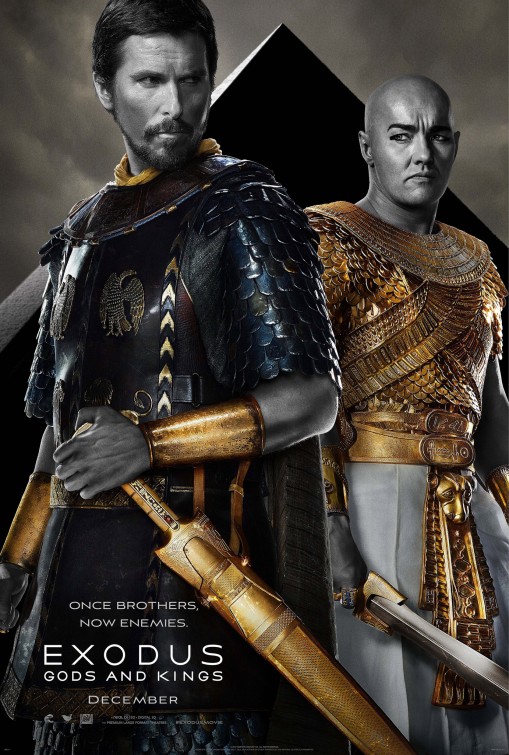 A few days ago some InterVarsity friends (Jon, Dan, Tim, and Jesse) and I were discussing an article that appeared in the Guardian asking if Moses was just a myth. The article quoted biblical scholar Philip Davies who said, “Moses himself has about as much historic reality as King Arthur” (Davies introduced me in Oxford in 2008 when I presented my Trash Talking paper.)
A few days ago some InterVarsity friends (Jon, Dan, Tim, and Jesse) and I were discussing an article that appeared in the Guardian asking if Moses was just a myth. The article quoted biblical scholar Philip Davies who said, “Moses himself has about as much historic reality as King Arthur” (Davies introduced me in Oxford in 2008 when I presented my Trash Talking paper.)
The topic of Moses is obviously timely in the advent of Exodus: Gods and Kings which comes out December 12, 2014.
I won’t address yet how “accurate” the new Exodus movie is since I haven’t seen it, although I do broach the subject here (this post also includes the trailer).
I don’t think Moses was a myth, but we need to acknowledges that there are several historical problems with the Exodus. In this post I’ll focus on one.
Problem # 1: Egyptian records don’t mention the Exodus.
The fact that there is no corroborating account of the Exodus in Egyptian sources could suggest that the Exodus and Moses are just myths.
But why would Egypt record something that makes them look so bad? If the book of Exodus is right, then a rather pathetic group of unarmed slaves defeated (with the help of Yahweh) perhaps the most powerful army on the planet. Egypt would presumably want to forget all about those Israelite escaped slaves. Ancient Near Eastern historical records are basically propaganda. As they say, “History is written by the winners.”
You might say, but isn’t Israel’s history then just propaganda too. Perhaps, and the biblical story clearly does have a bias, or if you don’t like that term, a perspective, a point it’s trying to make. But Israel’s history is unusual in that it makes the nation frequently look so bad: the golden calf, the refusal to enter the land, cycles of idolatry in Judges, a continuous stream of evil rulers, five distinct exile events as Israel and Judah are crushed first by Assyria (733, 722 BCE), then Babylon (597, 587, 582 BCE). Israel’s history doesn’t appear to be biased in Israel’s favor. The fact that the Old Testament makes Israel look so bad argues for its historical reliability.
Egypt does mention Israel in the Merneptah Stele, which is dated to about 1210 BCE, during the reign of Merneptah, the son of Ramesses II (also called Ramesses the Great), the ruler who is often associated with Moses and the Exodus (some scholars think Moses’ rival was an earlier pharaoh, but Hollywood always picks Ramesses, so that must be right). The reference to Israel on the stele is curious, as Merneptah bragging over the fact that Israel is basically wiped out by Egypt. Now, we know that’s he’s exaggerating because Israel was not in fact wiped out, but perhaps Merneptah is gloating because of the embarrassing thing that happened during his father Ramesses reign?
More on the myth of Moses in my next post.
